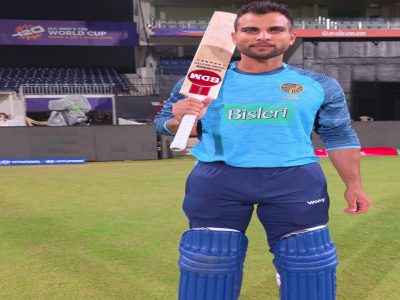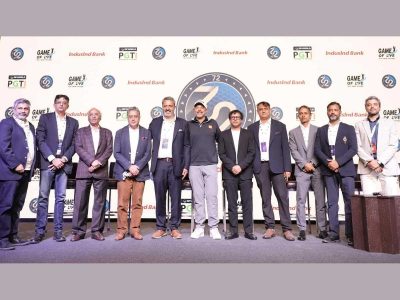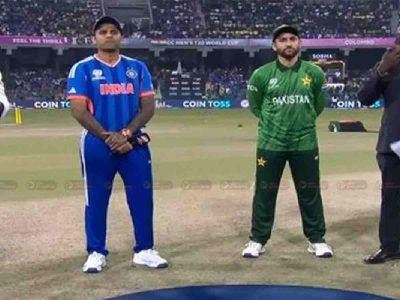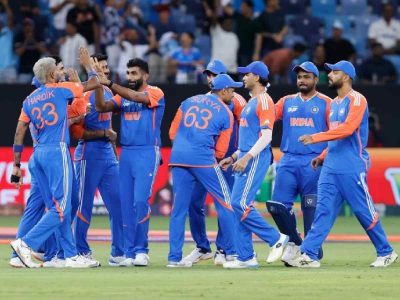As Real Kashmir FC becomes the first team from Jammu and Kashmir to play in the I-League, here’s a look at their rise to the top and what their success means for the violence-torn Valley
In 2016, when Hizbul Mujahideen commander Burhan Wani was gunned down by the Indian Army, the whole Valley of Jammu and Kashmir turned into a hotbed of violence with a curfew imposed on all ten districts of India’s northern-most state.
But amidst all this violence, two friends — Sandeep Chatoo and Shamim Meraj — ventured out together to form Real Kashmir FC, which is now one of the biggest rays of hope in the state’s sporting arenas.
Real Kashmir FC was formed in 2016 and in its first year, the club received an invitation to represent the state in the Durand Cup — the oldest football tournament in India. Owner Shamim Meraj, who is the editor of a local newspaper, says that the club was not even a part of the local league structure, when they were invited to play for the Durand Cup.
However, the heavy losses in their first two matches forced the team to crash out of the tournament. This is when they realised that to become a proper professional football outfit, they needed to have a proper coach and a proper footballing structure.
After a rather tumultuous 2016-17 season, the owners wanted things to get more serious. As the 2017-18 I-League Division II participation was drawing near, the club decided to get a more experienced backroom staff, so that they would have a better chance of playing well this time in the league, which boasted of experienced teams like Mohammedan FC and Hindustan FC.
In the process, they recruited legendary Scottish footballer and former coach of Scottish club Aberdeen FC, David Robertson, as their head coach with veteran coach, Jimmy Lindsey, as his assistant.
Meraj remembers that when the two foreigners landed in Srinagar in 2017, which was considerably not a safe time to enter the state, they were shocked to see empty streets and no Internet connection. They were extremely depressed, and it was Meraj who took them to his house and explained his vision of the football club to them, after which they finally agreed to participate.
Now, they are an integral part of the club.
When the 2017-18 season commenced, they had absolutely zero expectations and wanted to play their hearts out on the ground against seasoned Indian clubs.
Little did they know what was about to follow. They started playing a great brand of attacking football and were winning one match after another. In their final match of the season versus Hindustan FC, they were on the brink of promotion to the I-League, but it was only possible if they beat a more experienced bunch of players in Hindustan FC.
In one of the most enthralling games of the season, Real Kashmir FC managed to beat them 3-2, finishing first in the I-League second division. This meant that they were the first team from Kashmir to ever qualify for the I-League first division, India’s oldest and most prestigious football league.
“It was a very emotional moment for the players on the ground,” says Hammad Khan, the premier left-back of the team. “To think that we would play in the I-League was unimaginable. Not only did we qualify, but also became the pride of the whole state. From obscurity, we were catapulted into limelight,” he adds. Mohammed Shahnawaz, another player in the team says, “Playing with big clubs like Mohun Bagan and East Bengal will be a huge challenge for us, but we are fearless and plan to overcome all hurdles.”
Both players say that football was always a part of the Kashmiri way of life, long before the formation of Real Kashmir FC. “While the rest of the nation is obsessed with cricket, you will always find kids in Kashmir playing football,” says Hammad.
“In all our matches last year, our ground was jam-packed, people were cheering for us and the situation is still the same after two matches in this year’s I-League,” says Shahnawaz. Incidentally, the Indian captain during the 1980’s, Majid Khan, was from Kashmir. More recent Indian footballing stars from the state are Ishfaq Ahmed and Mehrajuddin Wadoo.
But it is not just locals like Hammad and Shahnawaz that comprise the club. There are many players from the North-East and other states as well. However, coach Robertson says that it is the local talent and the Kashmiri passion for the game that drives the club to achieve success.
The football club have also established a training academy to groom the local talent. The under-18 team of Real Kashmir recently visited Borussia Dortmund and even played a match against their junior team. They also had various training sessions there.
However, it is not only India that seems to be captivated by the spirit of Real Kashmir FC. Italian giants, AS Roma FC, recently tweeted out about the club in their weekly ‘inspiration of the week’ section. “It feels great when such big football clubs acknowledge us and it drives us more towards success,” says Hammad.
“Playing in the first division is a very important thing, not only for us, but for the whole of Kashmir,” says Shahnawaz. “When high profile clubs like Mohun Bagan and East Bengal will come to play with us in Srinagar, it will also bring some positivity in the people who have seen nothing but grim violence,” he adds.
“Young boys now look upto us as their heroes, as more and more boys are getting enrolled in our academy. This is a huge positive that is happening in Kashmir,” says Hammad.
Real Kashmir FC have already started their I-League debut season on a high. In their first match they beat defending champions Minerva Punjab on their home turf. In their second match at home, against league veterans Churchill Brothers, they secured a 0-0 draw. After the end of two matches, they are still unbeaten and stand third in the league table.
“We hope that we continue to play the way we have and achieve more greatness for the club, perhaps, also win the I-league,” says Hammad. The dream may not seem far-fetched after all since small teams like Aizawl FC and Minerva Punjab have won the league in the recent past. “If they can, so can we,” concludes Hammad.





